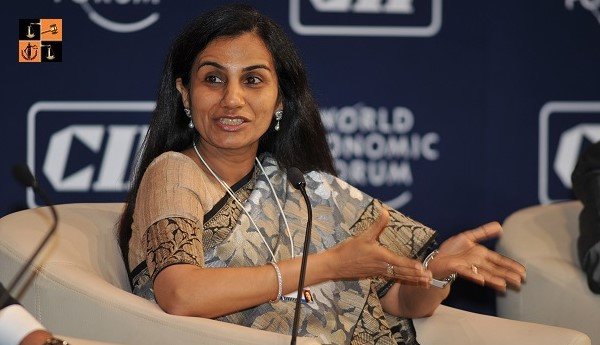SAFEMA Tribunal overturns earlier clean chit, validates ED’s money laundering probe against former ICICI Bank CEO
Chanda Kochhar, once a towering figure in Indian banking, has been found guilty of accepting a ₹64 crore bribe tied to a controversial ₹300 crore loan sanctioned to the Videocon Group in 2009. The verdict, delivered by an appellate tribunal under the SAFEMA Act, has reignited scrutiny into the tangled relationship between India’s corporate and banking elite.
The tribunal’s ruling backs the Enforcement Directorate’s (ED) claims of money laundering and nullifies a previous clean chit granted to Kochhar. It marks a sharp reversal of her fortunes and may set a precedent for financial misconduct cases in India’s banking sector.
A Loan, A Conflict, A Paper Trail
The SAFEMA Tribunal didn’t mince words: Kochhar’s role in approving the loan was tainted by “a clear conflict of interest.”
It wasn’t just a bad loan. It was personal. The tribunal pointed out that immediately after the funds were sanctioned to a Videocon Group entity, ₹64 crore ended up in NuPower Renewables Pvt. Ltd. — a firm co-founded by Kochhar’s husband, Deepak Kochhar.
The route was circuitous but traceable:
-
The money flowed through Supreme Energy Pvt. Ltd. (SEPL), allegedly connected to Videocon’s promoter, Venugopal Dhoot.
-
SEPL transferred ₹64 crore to NRPL, deepening suspicions of a quid pro quo arrangement.
-
At the time, Chanda Kochhar was still at the helm of ICICI Bank and personally involved in clearing the loan.
For investigators, this wasn’t coincidence. It was a pattern.

Tribunal Backs ED’s Money Laundering Case
The Tribunal’s order offers a major boost to the Enforcement Directorate, which had provisionally attached Kochhar’s properties under the Prevention of Money Laundering Act (PMLA). In a surprise twist last year, the PMLA Adjudicating Authority had thrown out that attachment, citing lack of evidence.
Now, that decision has been overturned.
The appellate bench observed that while a full criminal trial will ultimately determine guilt, there is sufficient preliminary evidence to sustain ED’s asset freeze. That’s a significant win for investigators, who have long argued that the Kochhar case reflects systemic lapses in corporate governance.
One judge noted: “The transfer of ₹64 crore is not just suspicious — it’s practically self-incriminating in the absence of any legitimate commercial rationale.”
ICICI Board, Regulators Under Fire
The ruling has put ICICI Bank’s past oversight processes under the microscope.
In 2009, the loan was part of a broader ₹40,000 crore lending binge across India’s power, telecom, and infrastructure sectors. The bank’s internal checks, it now appears, didn’t pick up on Kochhar’s familial and financial link to NRPL — or didn’t act decisively enough.
ICICI had earlier defended Kochhar, claiming proper procedures were followed. But the latest ruling could force both the bank and regulators like RBI and SEBI to revisit those assurances.
One former RBI official who requested anonymity said: “It’s embarrassing. If this kind of a conflict can slip through the cracks at a top-tier bank, what does that say about compliance?”
Timeline of Events
Here’s a breakdown of how the case unfolded over the years:
| Year | Key Development |
|---|---|
| 2009 | ICICI Bank sanctions ₹300 crore loan to Videocon |
| 2010 | ₹64 crore traced to NRPL via SEPL |
| 2016 | Whistleblower flags Kochhar–Videocon links |
| 2018 | ED and CBI initiate probe |
| 2020 | Kochhar arrested briefly; granted bail |
| 2023 | PMLA Adjudicating Authority gives clean chit |
| 2025 | SAFEMA Appellate Tribunal overturns clean chit, backs ED |
What Happens to Chanda Kochhar Now?
Technically, this isn’t the final word. The SAFEMA Tribunal ruling validates ED’s case but leaves criminal prosecution to the trial courts.
However, with this order in hand, the ED can now push for a firmer freeze on Kochhar’s assets, and may even strengthen its push for custodial interrogation. Sources close to the probe say fresh summons could be issued soon.
Meanwhile, Kochhar’s legal team is expected to challenge the ruling in a higher court. But the optics are damning. A person once hailed as the “face of India’s banking revolution” now stands accused of backroom deals and self-enrichment.
Industry Grapples With Reputation Fallout
Bankers across Mumbai are watching this unfold with unease.
While public sector banks have long battled perceptions of corruption, ICICI Bank was considered part of a new-age, professional class of lenders. Kochhar herself was one of three high-profile women CEOs — alongside Axis Bank’s Shikha Sharma and SBI’s Arundhati Bhattacharya — redefining India’s financial leadership.
Now, her fall casts a shadow on that narrative.
Some fear the ruling may deter risk-taking among senior executives or lead to hyper-cautiousness in corporate lending. Others see it as a needed reset — a moment for banks to prioritize transparency over celebrity leadership.
Either way, it’s a cautionary tale the industry won’t soon forget.
